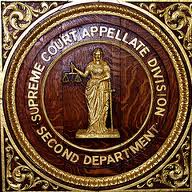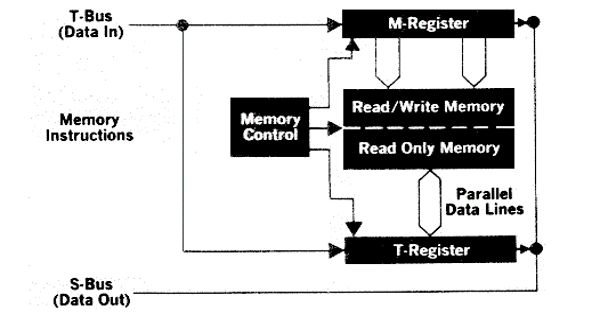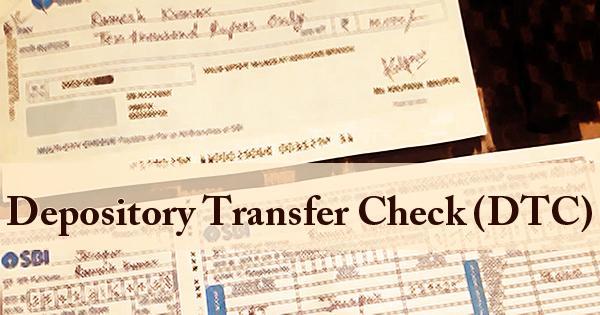Supreme Court Appellate Division
The Judiciary of Bangladesh consists of a Supreme Court, subordinate courts and tribunals. The Supreme Court of Bangladesh comprises of the Appellate Division and the High Court Division. It is the apex Court of the country and other Courts and Tribunals are subordinate to it.
The Appellate Division shall have Jurisdiction to hear and determine appeals from judgments, decrees, orders or sentences of the High Court Division. It has rule making power for regulating the practice and procedure of each division and of any Court subordinate to it.
The High Court Division, though a Division of the Supreme Court, is for all practical purposes, an independent court with its powers, functions and jurisdictions well defined and determined under the Constitution and different laws. It has both appellate as well as original jurisdiction. It hears appeals from orders, decrees and judgments of subordinate courts and tribunals. It has original jurisdiction to hear Writ Applications under article 102 of the Constitution, which is known as extra ordinary constitutional jurisdiction. It has further original jurisdiction, inter alia, in respect of company and admiralty matters under statutes. The High Court Division, in special circumstances, has also powers and jurisdiction to hear and dispose of cases as the court of first instance under article 101 of the Constitution. The High Court Division shall have Superintendence and control over all Courts and tribunals subordinate to it
Name of the Parties:
Dr. Syed Matiur Rub being dead his heirs Shamsun Nahar and others …………………… appellants VS
Bangladesh and others ………………………………. Respondents.
Name of the Judges:
- Badrul Haider Chowdhury
- Shahabuddin Ahmed
- M.H. Rahman
- A.T.,M. Afzal
Name of the Advocate:
(i) Syed Ishtiaq Ahmed, Senior Advocate
——————An the appellants
(ii) A.W. Bhuiyan Additional Attorney-General unstinted by M.R. Rahman
——————- Fro the Respondent No. (1-3)
(iii) T.H. Khan Senior Advocate (M.A. Wahab Miah Advocate with hims)
————— For the respondents no. 4
Date of the Judgment:
October 31, 1989
Under Section 43 of the Evidence Act 1872 Provides that-
Judgments, orders on decrees, other their those mentioned in sections 40,41 and 42 are inelegant, umbers the existence of such judgment order on decree is a fact in issue on is relevant under some other provision of this act.
Example-
A has obtained a decree for the possession of land against B.C, B’s son murders A in consequence.
The existence of the judgment is relevant as showing motive for a crime.
Evidentiary value to the previous judgment in unit petition no. 682 of 1980 as to the status of the petitioner in view of the provisions of section 43 of the Evidence Act not accorded effect of.
Judgment:
The appellant, Dr. Syed Matiur Rob died during the tendency of these appeals. His heirs are restituted. The appellant’s father, late Syed Mojibur Rob, Rob, a migrant to this country, served as a Deputy Inspector-General of Police and retired from service in 1958. He acquired, amongst other properties, three houses being holding No. 5 Bakshibazar, Dhaka; House No.-18-A, Road No. 20 Dhanmondi Residential area and holding no. 219 New Eskaton Road, Dhaka. He died on 06-12-1971 in Dhaka leaving the appellant and his only son and heir since his wife and his only daughter Sohani Rob had died earlier. He has buried on 6.12.1971 at the Mohammadpur gravcyard. A certificate dated 17.12.1977 issued by the Secretary of Mohammadpur Jame Mosjid and Eidgha (Annexure-A) was annexed to the writ petition to show the date of the burial.
The appellant came to this country in 1947 with his parents. He passed M B B S examination in 1955 and from then on he served in various intuitions and hospitals in this country. He inherited all the properties of his father, but the respondents illegally treated two properties in question as abandoned properties under Bangladesh abandoned property. His father went to Pakistan in 1971 and died there in 1978. He applied to the Sub-Divisional officer, Dhaka on 29.04.1972 for release of the properties. Several inquiries were made by various agencies of the Government as to whether the appellant was the only son of his father and whether Dr. Syed Mohibur Rob was a son of Syed Mojibur Rob. The appellant’s son of his father and left for Pakistan after independence of the country. A Photostat copy of death certificate of his father from a doctor showing that he died on 6.12.1971 due to heart failure. As the only heir of his father the appellant sold his father’s house at 5 Bakshi Bazar, Dhaka to one Mrs. Sahera Khatun. The property was also treated as an abandoned property, but on an application filed by Mrs. Sahera Khatun under Article 102 of the Constitution of the constitution of the people’s Republic of Bangladesh the High Court Division declared that the said property was not an abandoned property and directed the Government to release the same. the appellant contended that the question whether he was the only son and heir of the decased Syed Mojubur Rob was finally settled in that writ petition. On 22.5.1985 the appellant requested the government to release his father’s properties from the list of the abandoned properties, but by the letter dated 30.5.1985 the section officer in the Ministry of Public Works and Urban Development of the Government timed down his request. It was denied that Syed Mojibur Rob died in Dhaka on 6th December, 1971 and was buried in the graveyard at Mohammadpur. The appellant was an adopted son of Syed Mojibur Rob and as such he had not right or interest in the properties in question. The death certificate was obtained long after the death of Syed Mojibur Rob. The succession-certificate was obtained by the appellant on misrepresentation of facts by abusing the process of the Court. That Syed Mojibur Rob left Bangladesh during the liberation movement and that it is gathered from the photocopy of a letter dated 19.04.76 of Syed Mojibur Rob addressed to Mr. Ali Hafiz, retired Deputy Secretary, Finance, of 6 Bakshi Bazar Road, Dhaka, that Mojibur Rob died in Karachi in 1978 leaving behind his only son Dr. Mohibur Rob and a daughter Sohani Rob as his legal heirs who were living at 59 Alhamara Housing Society Karachi-8 Pakistan, and that Syed Mojibur Rob or his heirs having ceased to manage, supervise and control the properties in question personally they were rightly treated as abandoned properties.
Along with his affidavit-in-reply the appellant filed a certificated copy of the proceedings before the SDO for release of the properties and a copy of the enquiry report made by the Director, N.S.I., Dhaka, with regard to the claim of the appellant.
After the hearing of the case of concluded the appellant filed a supplementary affidavit annexing with it a photostat copy of certificate dated 24.5.1986 from the Principal of Dhaka Medical legal to the effect that Syed Matiur Rob, son of late Syed Mojibur Rob, was admitted in Dhaka Medical College in December 1949 as first year student and that he passed MBBS examination in April, 1955 on the other hand, respondent No. 1 filed a supplementary affidavit annexing with it a photostat copy certificate dated 17.6.1986 from the principal of Dhaka Medical College to the effect that Dr. Syed Mohibur Rob, son of Syed Mojibur Rob was admitted in Dhaka Medical College in October, 1947 first year student and he passed the MBBS examination in 1952. In view of these new papers the High Court Division again heard the learned advocates for the parities.
The appellant’s assertions that Syed Mojibur Rob died in Dhaka on 6.12.1971 and he was buried in Mohammadpur graveyard; that appellant is the only son and heir of Syed Mojibur Rob; that Mojibur Rob was the adopted son of his father, and the his sister and mother died before Syed Mojibur Rob were seriously challenged by the respondents.
High Court Division refused to decide the disputed facts, refrained from making any comment upon the papers produced by the parties and opined that the petitioner might seek relief in a properly constitution civil suit.
The High Court Division held that the principle of res judicata in writ matters where the decisions are made in a summary proceeding mostly affidavits should not be applied with the same strictness as in disputes in suits or proceedings determined in civil courts. The High Court Division however referred to Daryao and other Vs State of UP and other AIR 1961 (SC) 1457 wherein it was held the if a writ application is decided on merits as a controlled matter the decision will operate as a res judicator a subsequent writ petition.
The supreme Court held the question of title should not be gone into writ jurisdiction of the High Court and the proper remedy of an aggrieved party in a case involving a question of title to properly lies in a regular suit in a civil suit.
In dismissing the petition for special leave to appeal the Supreme Court observed that any finding or observation of the learned Judges of the High Court with regard to the question of title should not be banding in any court in any suit that might be institution by the petitioner. That observation is to be understood in the facts of that case .Many new issues save been raised in the present two proceedings namely, whether Dr., Motiur Rob is the adopted son of the deceased or there are other heirs, son Syed Mohibur Rob and daughter Sohani, who are alive residing in Pakistan, and whether Syed Mohibur is the adopted Rob is the adopted son of the decreased. In the judgment of Writ petition No. 628 of 1980 the two properties of the present proceedings were not mentioned and the appellant Matiur Rob’s claim to the properties did not come up directly for consideration. Dr. Matiur Rob was impleaded in the previous proceedings as a proforma respondent and he did not enter appearance in that case. As quite a few new issues have been raised in the present proceedings the earlier decision in Writ petition No. 682 of 1980 can not be set up as a bar to stop either the Government or respondent No. 4 from challenging the locus standi or claim of the petitioner appellant that he was the or claim of the petitioner appellant that he was the sole heir of the deceased Mojibur Rob.
The High Court Division erred in law in not according the evidentiary value to the previous judgment in writ petition No. 682. of 1980 as to the status of the petitioner in view of the provision of section 43 read with section 13 of the evidence Act.
The previous judgment is no doubt admissible to show the assertion of the petitioner but it cannot bind respondent No. 4 nor the Government in raised in these cases had no occasion to be considered in the previous proceedings instituted at the instance of a third party where present appellant himself did not make any assertion as to his status or claim.
The learned Counsel for the appellant has reputedly pointed out that the High Court Division’s observation that the petitioner may seek remedy in Civil Court will be of no help to him because he had, unfortunately, withdrawn title Suit No. 360 of 1984 from the Court of Subordinate judge, 3rd Court, Dhaka without permission for the Court to file any suit afresh.
The appellant’s predicament, now pointed out, does not appear to have been brought to the notice of the High Court Division. In any view of the matter, we refrain from making any comment on this aspect of this case. The appellant should be left to the ingenuity of his learned Counsel for finding any other remedy that may be available to him in law.
The nature and the extent of the disputed fact in this case may be exemplified by the document dated 24.12.69 filed after the hearings of the case, and the court heard the matter again. The document is a declaration made by the deceased Rob on 24.12.69 to the effect that “Syed Mohibur Rob was never my son and as such Syed Matiur Rob is my only son and he will inherit all my properties after my death” is not made before any magistrate or affidavit commissioner. The Court can hardly accept such an unilateral declaration without examining at least one of the witnesses to the declaration and the circumstances that gave rise to the occasion for such a declaration. The High Court Division correctly refused to act on this declaration in a summary proceeding, particularly, when a certificate from the principal of DhakaMedicalCollege, clearly indicate that Dr. Syed Mohibur Rob was the son of Syed Mojibur Rob and that he was admitted in Dhaka Medical College in 1947 and he passed the MBBS examination in 1952.
The appellant tried to improve his case stage by stage and filed several documents which were not contemporaneous to the death of the deceased or to the date of the filing of writ petitions. It must be said the High Court Division gave a very patient hearing to the appellant. In a writ proceeding the petitioner is not entitled to make out a case in his affidavit in reply. A departure from this norm can only b e made in exceptional circumstances for making complete justice in a matter.
In view of the above, dismiss both the appeals, without making any order as to costs.
High Court Division
Civil Appellate Jurisdiction
Name of the Parties:
Abdul Gani Khan ………………… Appellant VS
Shamser Ali and others ………………. Respondent
Name of the judge
Syed Fazle Ahmed
Name of the Advocate
Abdul Majid, Advocate——————For the appellant Khandakar Saiful Huq, Advocate—————-For the Respondents.
Date of Judgment:
December 15th 1991.
According to section 44 provides that my panty to a suit on other procedure may show that any judgment, under an decree which is relevant under section 40, 41, on 42 and which has been proved by the adverse panty was delivered by a court not competent to deliver it an was obtained by fraud on collision.
Principle:
Fraud-When a judgment is set up by one party is a bar to the claim of the other, the latter can show that the same was delivered without jurisdiction or was obtained by fraud. It is necessary for him to have the judgment set aside by a separate suit.
A party to a proceeding is never disabled from sawing that document has been obtained by adverse party by fraud. As per provision contained in section as of evidence act legality or otherwise of the impugned decree which is passed on the basis of Bainanama Ext. 2 can be called in question without any separate suit to have the ex parte decree world.
Judgment
This second appeal is directed against the judgment and decree passed by additional district judge, Pabna in Other class Appeal No. 35 of 1975 dismissing the appeal and affirming the judgment and decree passed by learned Munsif, 1st Court, Pabna in OC Suit No. 135 of 1973.
Defendant obtained a sale deed from Manada Sundari’s husband Nagendra in respect of the suit land on the plea that Nagendra took pattan of the suit land in the benami of his wife and on the basis of that sale deed Ext. ‘A’ a mutation proceeding was initiated and on the basis of that mutation proceeding defendants got their name mutated in respect of the suit land.
Defendant contested the suit by filing joint written statement contending, inter Alia, that Nagendra Nath took pattan in the benami of his wife Manada Sundari for his own interest and benefit and accordingly he had been in possession thereof and consequently defendant purchased the suit land from Nagendra by registered sale deed dated 16.2.1962. by virtue of this purchase defendant acquired valid right, title and possession in the suit land.
Both parties led evidence in respect of their respective contentions. The learned Munsif on, consideration of the evidence on record, facts and circumstances held the suit is not maintainable inasmuch a plaintiff is not in possession of the suit land and as such it is hit by section 42 of he specific Relief Act on this finding the learned Munsif dismissed the suit.
Being aggrieved and dissatisfied with the judgment and decree passed by the Munsif, plaintiff preferred appeal before the District Judge, Pabna and the appeal being OC appeal No. 35 of 1976 on transfer was heard by additional district judge, Pabna who on reappraisal of the evidence on record came to the finding that Bainapatra ext. 2 is a forget document created for the purpose of the suit.
The learned Additional District Judge also considered the evidence of attesting witness PW2, Abdul Gofur Khan and PW 3 Abdul Latif. But he could not place reliance on their te stimony and on consideration of the evidence on record concurred with the finding of the trial Court and held that the Bainanama Ext. 2 is a forged and fabricated document.
The learned advocate appearing for appellant that unless the expiree decree passed in the suit (OC Suit No. 123 of 1962) is set aside defendant cannot claim any relief. In reply to this contention it is urged that the ex parries decree passed in that aforesaid suit stands vitiated by fraud the term ‘fraud’ has not been defined in the evidence Act. The definition of fraud is only to be found in section 17 of the Contract Act. Fraud properly includes all acts, omissions, and concealments, which involve a breach of legal or equitable duty, trust or confidence, just reposed an unconscionable advantage is taken by another. A person does a thing fradulently if he does it with intent to defraud.
Section 44 of the evidence Act lays down not only rule of law relating to the evidence but also rule of procedure, section makes the provision for impeaching on the ground of fraud documents interparties. Under section 44 of evidence Act it is competent for a party to suit other proceedings to show in it that a document or a decree has been proved against him by his adversary, in that suit was obtained by fraud without having it set aside. When subsisting judgment, order, or decree was delivered by Court without jurisdiction or was obtained by fraud, collusion and it is not necessary for him to have it previously set aside by separate suit. A party to a proceeding is never disabled from showing that document has been obtained by adverse party by fraud.
Both Courts below concurrently held on consideration of the materials on record that Manada Sundari was an illiterate woman and that Bainapatra on the basis of which ex parte decree in the aforesaid suit was passed was brought into existence in a clandestine manner and that ex parte decree stands vitiated by fraud. So, as per provision contained in section 44 of evidence Act legality or otherwise of the impugned decree which is passed on the basis of Bainanama Ext. 2 can be called in question without instituting any separate suit to have the ex parte decree set aside.
In this connection the evidence of PW4 Abdul Hakim Mollah was duty considered by both the Courts below. PW 4 in his evidence admitted that defendant possessed the suit land 14/15 years ago and relying on this evidence the learned additional district judge, held that the defendant entered into the possession of the suit land 14/15 years ago. But there is no evidence to prove termination of their possession.
Therefore, when there is no misreading of evidence or ignoring of evidence and the conclusions are based on corroborated evidence, the appraisal of evidence is not shown to be wrong and the decision is not based on more surmises or conjectures, the finding of fact of the lower court cannot be challenged in second appeal, and the High Court can neither investigate the grounds on which the finding has been arrived at nor interfere with it, be that the evidence is unsatisfactory, or that it has not been properly appreciated or that the decision is open to doubt or it may even be grossly and inexcusably erroneous.
Both the Courts held that plaintiff appellant to be out of possession of the suit land and the trial Court dismissed the suit TS no. 135 of 1973 on 7.6.73 and against the judgment and decree appeal was preferred being title appeal no. 90 of 1973 and the appellate Court sent back the case on remand for fresh trial on 29.09.74 and on receipt back of the record on remand the trial was held by the Munsif who again dismissed the suit on 31.1.75. Thus it appears that enough opportunity was available to the plaintiff appellant but it was not availed of.
Thus having considered the ent4ire evidence on record and having regard to the concurrent finding of the Courts below regarding the factum of possession I am of opinion that the learned Additional District Judge committed no error of law or procedure and as such the impugned judgment does not call for any interference.
In the result, the appeal is dismissed without any order as to costs.
Appellate Division
Name of the Parties:
State …………………….. Petitioner VS
Raihan Ali Khandker and others …………. Respondents.
Name of the judge
(i) Chief Justice ATM Afzal
(ii) Mustafa Kamal
(iii) Latifur Rahman
(iv)Md. Abdur Rouf and
(v) B B Roy Choudhury
Name of the Advocate
B. Hossain, Deputy Attorney-General, instructed by Sharifuddin Chaklader……… for the Petitioner
Not represented—- Respondents.
Date of the Judgment:
1st April 1997
According to section 45 provides that when the count has to form an opinion upon a point of foreign law an of science on arts or as to identify of hand writing on finger impressions the union upon that a point of pension specially skilled in such foreign law science on arts on in questions as to identity of handwriting or finger impressions are relevant facts such persons are called experts.
Example-
The question is whether the death of a was cured by poison. The opinion of experts us to the symptoms produced by the poison by which a is suspense to have died are relevant.
Principle:
The High Court Division rightly found that it was unsafe to convict the accused persons on the uncorroborated opinion of handwriting.
Judgment:
The State as petitioner has preferred this petitioner for leave to appeal from the judgment and order of acquittal dated 4-5-95 passed by a learned single bench of the High Court Division in Criminal revision No. 203 of 1991 acquitting the three accused-respondents from their conviction. A sentence of the one yar as against respondent No. 3 and a fine of Taka 10,00.00 in default, to suffer Rl fro two years as against respondent No. 1, a fine of taka 5,000.00 each as against respondent No. 2and 3, in default Rl for six months and one year respectively, passed by the Additional district Magistrate, Pabna in DAB GR Case No. 1 of 1988 affirmed by the learned sessions judge, Pabna in Criminal Appeal No. 42 of 1989.
PW 11 Abul Khair lodged a petition of complaint on 13-1-87 before the Upazila Magistrate, Bera being complaint Case No. 5 of 1987 against the accused-respondents and others under sections 419/420/467/109 of the Penal Code. Mojahar Ali Mollah was the owner of 8.91 acres of land. He died on 10-6-79 leaving behind no issue. After his death his only heir Wahed Ali Mollah became of the owner of the said property. Mojahar Ali Mollah had a wife named Rashida Khatun, accused respondent No. 3 who was divorced by him prior to his death and thereafter she married Md. Raihan Ali Khandker, accused respondent No. 1 Said Rashida Khatun claiming herself to be the4 lawful wife of Mojahar Ali Mollah claimed the said property left behind by Mojahar Ali and on 11-10-80accused respondent No.2.
Being aggrieved by the said order defendant-respondent No. 1 took an appeal to the High Court Division, FMA No. 15 of 1996. In which the impugned judgment and order as referred to above, were passed now this petition for leave to appeal from the same.
In allowing the appeal the High Court Division found that there was no valid service of show cause notice upon the defendant respondents as required under Order 5 rule 17 CPC and further that there was no compliance with rules 19 and 19A of the said order. The plaintiff made a sweeping statement without any concrete allegations and material regarding the alleged attempt to dispose of or to remove the same from the jurisdiction of the Court and close the business by the appellant. Finally I was held that the order of the learned subordinate urge could not stand as the same did not satisfy the equipments of order 38 rule 5 CPC and further for want of valid service of notice
The petitioner, upon drawing our, attention to the declarations made by the process server along with its reports and further referring to the decisions Md. Iman Ali Vs Mir Abdus Salam, 1988 BCR. 83 and some others submitted that the High Court Division was wrong in holding that there was no valid service of notice upon the defendants. He submitted that the declarations were evidence of the fact of service of notices.
Syed Ishtiaq Ahmed, learned Counsel, entering caveat for respondent No. 4 submitted that the High Court Division correctly decided both the points, that of service of notice and grounds for attachment, upon following correct principles of law.
Mr. As far as service of notice is concerned, we find that although there were irregularities in the matter of service under rule 17 and declaration by the Court as to service under rule 19, but, strangely enough, defendant Nos. 1-4 did appear, as the ordersheet shows on 1-1-96 and were granted time to file objection against the application for attachment.
But the main consideration is that the power of attachment of property before judgment being an extraordinary power of interfering with a party’s right to use and enjoy its own property before any decree is passed, the Court should be very circumspect in allowing such prayer and must decide the matter on the strength of the facts of each case.
The High Court Divison has correctly kept the principles in view and rightly decided against the attachment order. A big company like respondent No. 1 could not be and should not be prevented from drawing its bills disrupting its business merely on a vague allegation that the defendants were trying to close down their business or that they have been trying to withdraw bills from the Bangladesh Bank to defraud the plaintiff and to frustrate the suit.
The petition is dismissed.
Civil Appellate Jurisdiction
Name of the Parties:
Abdul Gani Malitha and an other …………………… Apellants.
VS
Sariatullah Biswas and other……………… Respondents.
Name of the judge
Justice Idris,
Date of Judgment
August, 7, 1963.
Name of the Advocate
Ruhul Islam———–For the Appellants
Yakub Hossain————For the respondents.
According to section 47 provides that when the court has to from an opinion as to the person by whom any document was written an signed the opinion of any person acquainted with the hand writing of the person by whom it is supposed to be written on signed that it was not written on signed by that person is a relevant fact.
Principles:
It is not necessary that whenever a person denies his signature or hand writing in a documents, it should be sent to an expert for opinion. There are other made of proving handwriting or signature as provided in sections 45, 47, 67 and 73 of the Evidence Act.
Judgment:
The appeal arises out of a suit for recovery of possession on declaration of plaintiff’s right and title to the suit land, This land originally belonged to one Haro Krishna Mondal. There is no dispute about this. The case of the plaintiff was that he got the land by exchanges from Hare Krishna and that subsequently Abdul Hannan climed the land as an Am Mukteaer of Haro Krishna. There was no arbitration and the arb trators passed a Salisnama. According to the term of the saliabnature, Abdul Hannan granted settlement4 of the suit land by a namelanama in favour of the plaintiff. The plaintiff possessed the land after was settled with him but was disposed by the defendants in 1363 B.S.
The defense was that there was no salish or Amalnana and that defendants have been in possession of the suit land on the basis of settlement from Abdul Hannan Am. Mukter of Hare Krishna Mondal.
The learned Munsiff on a consideration of the evidence held that the Salishnama and the Amalnama were genuing documents and that plaintiff was granted settlement of the suitland by Abdul Hannan and that plaintiff had his right and title to the Suitland. It was further held by the larned Munsiff that t here was no settlement of the suit land in favour of the defendants.
Mr. Ruhul Islam, the learned Advocate on behalf of the appellants has contended that the Courts below erred. In law in relying on the Salishnama, although these were not admissible in evidence.
There is no dispute that Abdul Hannan was the Am Moktear of Here Kaishna Mondal. It is the plaintiff’s case that there was an arbitration and that the arbitrators passed the award and that in terms of the award, Abdul Hannan granted settlement of the suit land by the Amalnama in favour of the plaintiff in the circumstances the award and the Amalnama were relevant documents for the purpose of decision of the issue whether plaintiff had any right, title and interest in the suitland.
It has been next contended that defendants Nos. 1 and 2 were not parties not parties to the award, it was not admissible against them. The defendants claimed title on the basis of settlement from Abdul Hannan Am Moktear of Hare Krishna Mondal. Abdul Hannan is proforma defendant4 No. 4 in the suit; as Abdul Hannan was a party to the award it was admissible in evidence.
The ordinary modes of proving hand-writing or signature are:-
- By calling as a witness a person who wrote the document or;
- Saw it written, or signed; or
- Who is qualified to express an opinion as to the hand-writing by virtue of section 47 of the evidence Act; or
- By the admission of the person against whom the document is tendered or.
- By expert evidence under section 45 of the evidence Act.
It is not necessary that whenever a person denies his signature or hand writing in a document, it should be sent to the expert for opinion.
Mr. Islam as further contended that the award and Amalnama were not duty proved. This contention also cannot be accepted in view of the evidence of P.Ws 1, 2 and 3 the courts below relied on their evidence.
It has been rightly held that the plaintiff has his right and title to the suit land. There is no ground to interfere with the judgment of the lower appellate Court.
In the result, the appeal is dismissed with costs; the judgment and decree passed by the lower appellate Courts are affirmed.
High Court Division
Name of the Parties:
Imamuddin ———-Appellant VS
Sukkar Ali Molla and others— —– Opp. Parties
Name of the judge
Fazle Munim, D.C. Bhattachary
Name of the Advocate
Mainul Huq with Abu Syeed Ahmed for Attabuddin
Ahmed———-For the Appellant
Md. Shehabullah—————For respondent not
Date of Judgment
June, 1, 1973
Section 50
According to section 50 provides that —When the count has to form an opinion as to the relationship of one person to another the opinion, expressed by conduct as to the existence of such relationship of any person who as is member of the family on other-wise has special means of knowledge on the subject is a relevant fact.
Example-The question is whether A and B were married. The fact that they were usually received and treated by their friends as husband and wife is relevant.
Witness opinion as regards relationship between the father and his issue.
Independent witness’s opinion about the conduct of a towards B showing that the relationship between A and B had been one of father and daughter is admissible in evidence under sec 50 of Evidence Act.
Judgment:
This appeal arises out of the judgment and decree date 31-7-62 passed by Mr. M.S. Rahman, Subordinate Judge, 4th Court, Dacca in partition Suit No. 61 of 1962.
The only question which has been vehemently canvassed before us relates to the parentage of their vendor as claimed by the plaintiffs falls through she cannot be held t4o have inherited any share whatsoever in the disputed land and to have passed it on to the plaintiffs. In order to knock the bottom out of the plaintiffs claim of having purchased the shares of their vendor in the disputed land the defendants main effort has been directed against the admissibility of a Kabin-nama Ext. 2 and its evidentiary value and also of the evidence of the plaintiffs witnesses to establish the vendor’s parentage.
Section 50 of the evidence Act. and also asserted that the have no evdentiary value.
Before considering the applicability of these provisions to the facts of the present case .it would helpful if such evidence as has been asserted to be inadmissible and lacking in evidentiary value may be quoted.
I have seen Mohar Ali. He died when I was about 10/11 years ago. I have seen Baharjan is the daughter of Mohar Ali I have seen her in his house. She visited the house of Mohar Ali Baharjan was married with Mana and then with Akbar Palwan and then Madhu.
P.W. 3 who is 45 years old stated: Naimuddin son of Mohar, Baharjan, his sister married from his house. I was present. in the marriage majlish. Baharjan visisted the house of Mohar, She is the I live close to the house of Mohar Ali.
P.W. 4 who is 95 years old stated:- I know Baharjan. I live close to Mohar’s house. I have played with Baharjan during my childhood, she is the daughter of Mohar. She has given in marriage by Naim, her brother. I was present in the marriage.
Two facts are seen to have clearly emerged from their evidence. One is the conduct of Naimuddin in giving his sister Baharjan in marriage from his house. The other is conduct of Mohar in rearing up Baharjan in his house as his daughter.
If it is proved Baharjan lived in Mohar’s house and was brought up and given in marriage as his daughter this would clearly amount to an attention that Baharjan could not be anybody else than the daughter of Mohar. Since the statements of PWs 2,3 and 4 afford some evidence enabling us to arrive at a right conclusion as to the fact in issue. They could not be brushed asied as inadmissible evidence. Their evidence insofar as it gives as a glimpse into the opinion of Mohar and Naimuddin as expressed by the conduct towards Baharjan, is certainly not hit by the provisions of section 50 of the evidence Act.
The appellant, further asserted that P.W. 3 who was aged 45 years only at the date of the deposition was not speaking the truth where he stated that he knew Baharjan since her infancy, because, as it would appear from the evidence of PW. 2 Mohar Ali died some 60 years ago when PW. 2 was only 10/11 years old. So Baharjan could not be less than 60 years of age if not more at the time he was deposing before the Court. She must have been fifteen or sixteen years old when PW-3 was born, his present age being 45. Some doubt may arise from such discrepancy in their evidence regarding the age of Baharjan.
The appellant could not show us any authority on the proposition that a partition suit is not maintainable if any question regarding title has to be determined in such a suit. Moreover, it may be pointed out that when both the plaintiff and the defendants are tracing their title to the disputed land from the same person. Mohar who is admittedly the owner of the disputed land. Such objection can hardly be sustained from the facts and cir3cumustances as well as the evidence on record it appears that the plaintiffs have succeeded to prove their title to and possession in the disputed land.
In view of the findings above both on the merits and the question as to whether the appeal is maintainable or not, we cannot but dismiss the appeal. The appeal is accordingly dismissed with costs.
Book Reference:
Evidence Act: KK Sing
42 DLR AD-1990
45 DLR AD-1993
50, DLR AD-1998
16, DLR AD-1964
26, DLR AD-1974
















